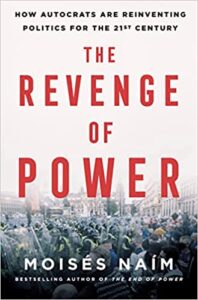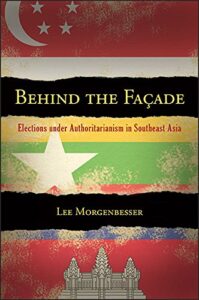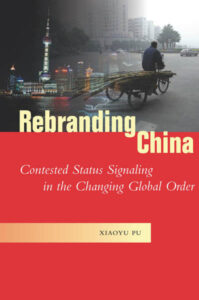 Why do autocrats like Maduro, Ortega, Putin, Lukashenko, et al, take the trouble to mount elections that everyone knows are false? asks Moisés Naím, author of the forthcoming The Revenge of Power: How Autocrats Are Reinventing Politics for the 21st Century. Because they need legitimacy, the scarcest of political resources, says the former National Endowment for Democracy board member.
Why do autocrats like Maduro, Ortega, Putin, Lukashenko, et al, take the trouble to mount elections that everyone knows are false? asks Moisés Naím, author of the forthcoming The Revenge of Power: How Autocrats Are Reinventing Politics for the 21st Century. Because they need legitimacy, the scarcest of political resources, says the former National Endowment for Democracy board member.
What is left after autocrats have gutted democratic institutions is “hegemonic authoritarianism,” Lee Morgenbesser of Australia’s Griffith University told The Atlantic’s Timothy McLaughlin:
It’s a system, he said, that exists when “de facto opposition parties are banned, basic civil liberties and political rights are overtly violated, the rule of law is arbitrarily breached, and the government has monopolized access to media.” Crucially, this type of governance structure allows places like Hong Kong and other regimes, such as those in Laos and Vietnam, to keep up the veneer of democratic competition but with the preferred results all but guaranteed.
 “Ultimately, elections may be allowed to exist, but they cease to be an avenue for actual opposition parties to gain power,” said Morgenbesser, who has analyzed Cambodia’s transition to hegemonic authoritarianism.
“Ultimately, elections may be allowed to exist, but they cease to be an avenue for actual opposition parties to gain power,” said Morgenbesser, who has analyzed Cambodia’s transition to hegemonic authoritarianism.
This is hardly a new phenomenon. Almost 20 years ago, Stanford’s Larry Diamond wrote of Elections Without Democracy. and Steven Levitsky and Lucan Ahmad Way outlined The Rise of Competitive Authoritarianism.
First, more regimes than ever before are adopting the form of electoral democracy, with regular, competitive, multiparty elections, Diamond wrote in the NED’s Journal of Democracy. Second, many of these regimes—indeed, an unprecedented proportion of the world’s countries—have the form of electoral democracy but fail to meet the substantive test, or do so only ambiguously.
 While autocratic regimes seek to subvert international norms, they are also constrained by them.
While autocratic regimes seek to subvert international norms, they are also constrained by them.
“Democracy has been a dominant global norm, and it is hard for Beijing to openly challenge such a norm,” Xiaoyu Pu, an assistant professor at the University of Nevada at Reno and the author of the book Rebranding China, told The Atlantic’s McLaughlin.
“Instead of delegitimizing democracy itself, Beijing has always emphasized democracy could take different forms and their governance model could be one of the legitimate models.”







